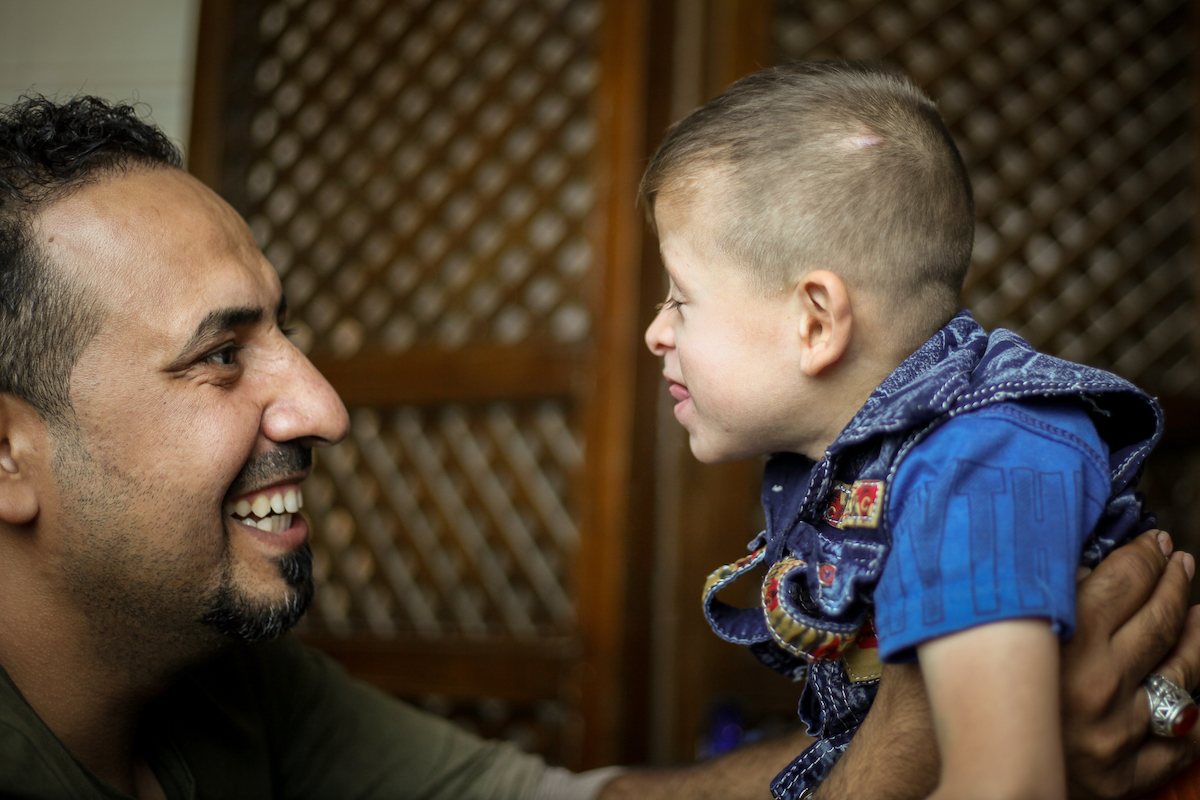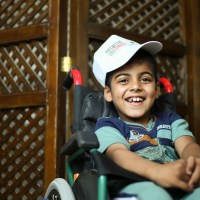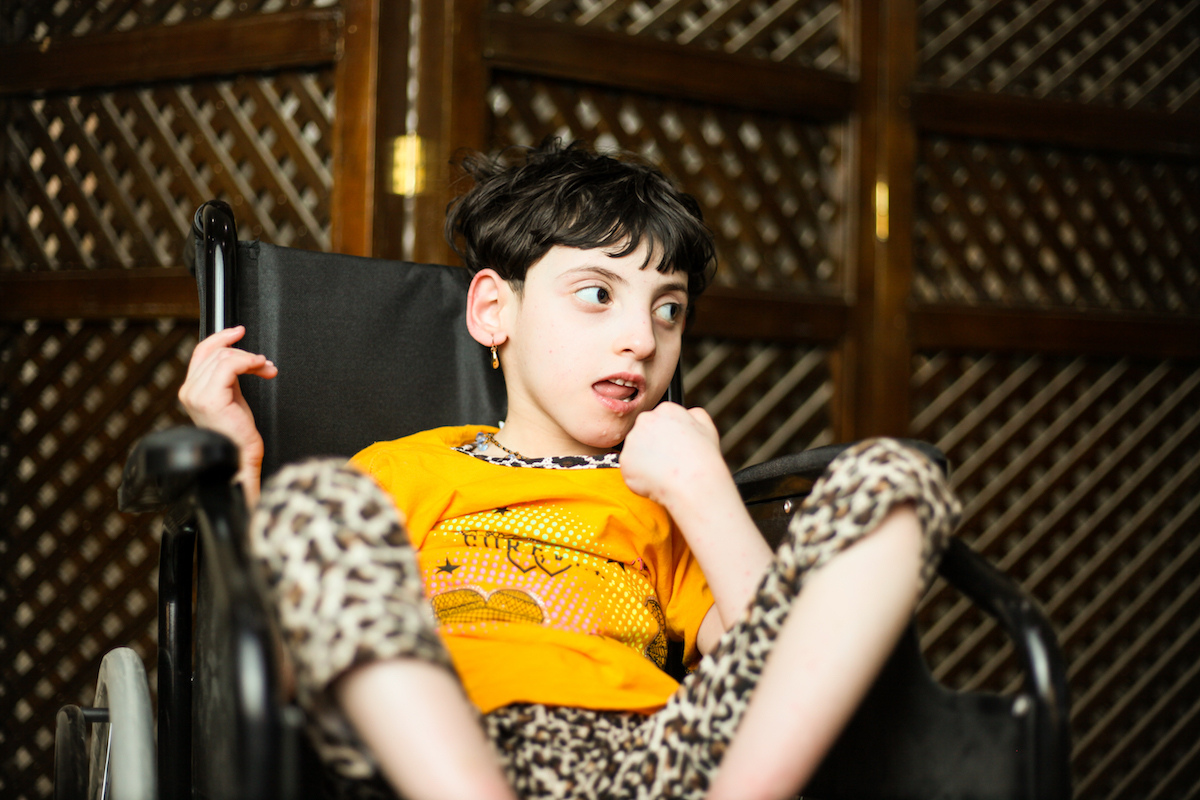A giggly boy in Mosul after receiving his new wheelchair. Photo by Matthew Willingham/Preemptive Love Coalition.
“I can’t even imagine.”
I’ve said it too many times, and I’ve heard it from others. When we tell stories about war and loss and the pained stories of refugees we love, we sometimes say it among ourselves on staff calls or when we chat with many of you.
It’s true, pain like this is hard to imagine. But it isn’t impossible.
That’s why we keep writing these stories, keep listening to your stories, keep welcoming each other into life together, keep pressing into pain. It’s a simple statement: “That’s so hard for me to imagine, but I’m going to try.”
Loving others means slowing down long enough to imagine what they must feel, why they feel it, why they are the kind of person they are.
Some people may scare you, others show you horrific wounds you’d rather not see, and others seem cold, closed off to you. Imagine anyway.
Listen anyway. Sit with them anyway.
Love anyway.
We know you do this, because you’ve spent years imagining with us.
You imagined how dying children must feel, and you helped save their lives—thousands of children are alive because you imagined healing for them.
You imagined the pain of running from ISIS, fleeing genocide, of seeing friends and loved ones caged or killed, and you hoped for—no, you demanded—better for them, and you helped them get food, shelter, jobs, and education.
You imagined chemical gas seeping into your safest corners, choking you and your family, and you chose to act. As the world reacted with either outspoken rage or deafening silence, your response to chemical attacks in Syria cut through all that.
Now I want you to imagine what it must be like to have a disability when you live in a war zone.
Imagine the trauma of living with a disability under ISIS, a group known for exterminating people with any “blemishes” in the name of “purifying” the population, a group accused of using people like you as human shields.
Imagine you actually survived the horrors of ISIS and the war to oust them from your city. Now a new struggle begins.
Forget handicap parking. Forget rails and ramps. Forget heading over to a shop for new crutches, wheelchairs, or medication suited exactly to your needs.
Recently, we wound our way through central Mosul—where some of the heaviest fighting took place this time last year—toward a hospital where we were going to serve disabled Iraqis. And this is all I could think about.
How did these people make it through this? How on earth could they survive all this violence?
But here’s what I failed to imagine: these people and their families love one another. Deeply.
In my selfishness, I’d assumed that baser survival instincts would kick in, and those with disabilities would be left to fend for themselves. Shame on me for forgetting the resilience of family—and that love has always been more powerful than any bomb, any violent act, or anyone’s survival instinct.
The love of mothers, fathers, brothers, sisters, and grandparents kept these beautiful, extraordinary people alive, and I want you to meet them. They are heroes, and their superpower is sacrifice.
You provided their disabled loved ones with wheelchairs and medication, and we’re thrilled to share their stories with you this week—stories like Asma and her mother Aysha.
Stay tuned. We can wait to introduce you to a few more of our remarkable friends this week.



